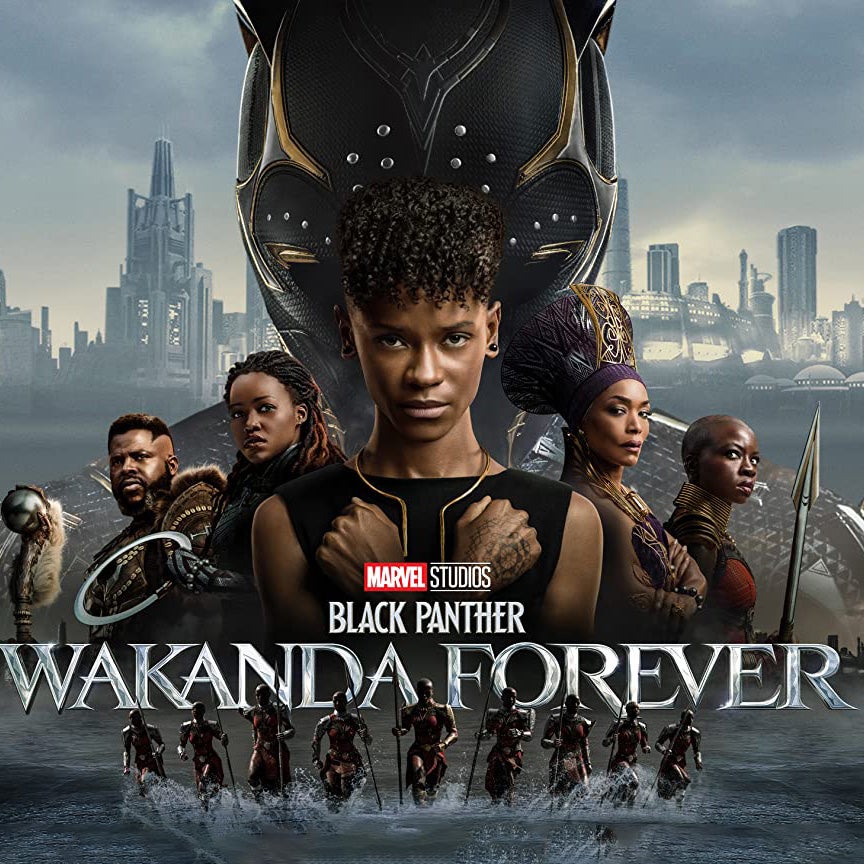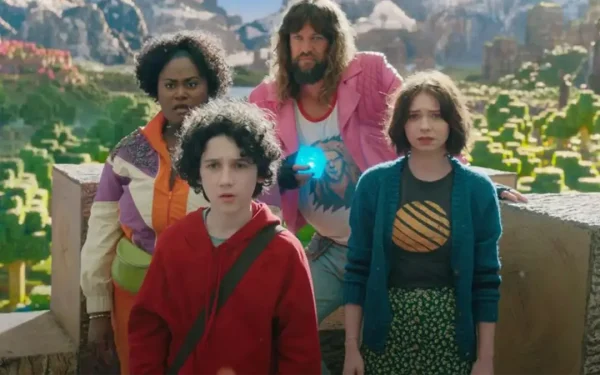A failure to legacy: ‘Black Panther: Wakanda Forever’
“Black Panther: Wakanda Forever” released on Nov. 11, 2022, with a run time of 161 minutes. Despite being produced as a testament to the legacy of Chadwick Boseman, the film ultimately fails on all accounts.
With a budget of $250 million, and being in production for several years, the film follows the aftermath of Boseman’s former character, T’Challa’s death. T’Challa’s sister, Shuri, is played by the reprising actress, Letitia Wright. The plot falls short, the acting is not up to par with the film’s budget and it follows the current Marvel Cinematic Universe’s (MCU) standard of poor computer-generated imagery (CGI). For a film that declares itself a dedication to Boseman, it is better left forgotten than attributed to him.
“Wakanda Forever” starts with the exposition to catalyze the rest of the film, the death of T’Challa. Such a start is necessary, but the obscurity of his death combined with its impact being the central focus of the film makes for a poor setup that culminates in failure.
Few actors fulfill their job in portraying the turmoil of losing both a loved one and a leader. Most notably, Wright’s performance has the emotional value of drywall. Fortunately, Angella Bassett, who plays the mother of Shuri and T’challa, did an incredible job, essentially carrying the film emotionally. Winston Duke’s character, M’Baku, is one of the few actors to provide an emotion other than grimace and rage; without him, the film would have lacked any effective humor. Dominique Thorn’s character, Ironheart, felt poorly written and rushed into the story, so that she might be introduced prior to her Disney+ show’s debut. It is genuinely unfortunate Bassett’s character could not take the lead because such a poor representation of a black female lead ultimately sets back what should be a leading trend in Hollywood.
The premise of the film follows a more Wakanda centric story, as the name would imply, and sees a nation struggling to reaffirm its supremacy following its leader’s death; all in a world looking to steal from and destabilize it. “Wakanda Forever” quickly abandons such an idea, which could have made for an interesting plot line, to establish a new world power with mesoamerican roots and strength in vibranium (the mystical metal which makes Wakanda so significant). The film truly starts strong, with a heartbreaking beginning, but despite the hopes of all viewers, it simply fails to be entertaining or emotionally captivating.
“Wakanda Forever” is no outlier in the current trend for Marvel movies. Its editing is rushed, and as a result the graphics are comparable to video game cutscenes from 2010. “Dr. Strange and the Multiverse of Madness” and “Thor: Love and Thunder” both fall victim to similar patchy work; however, “Wakanda Forever” takes it to another level. Any scene with CGI can easily be equated to a modern mobile game. Not only does it feel sloppy, it makes the film feel undeserving of its title, the audience’s time and the legacy of Boseman.
“Wakanda Forever’s” small redeeming qualities are unfortunately entrenched and suffocated within the rest of this horrid three hour waste. The insincere acting along with messy graphics make for a lacking spectacle. The gall this movie and all its staff portrayed by depicting this as the final note to a legendary actor’s career is nothing less than disturbing. ★☆☆☆☆

James is a senior at Clover Hill and is in his second year of writing for the Chronicle. His love for writing and meeting new people has culminated into...













Yacub • Feb 1, 2025 at 2:01 pm
Your take is terrible. I loved the movie and the more I watch it, the better it became, evoking emotions in me for dealing with loss and overcoming loss. Embracing your pain, the strength of family, and the power behind unity.